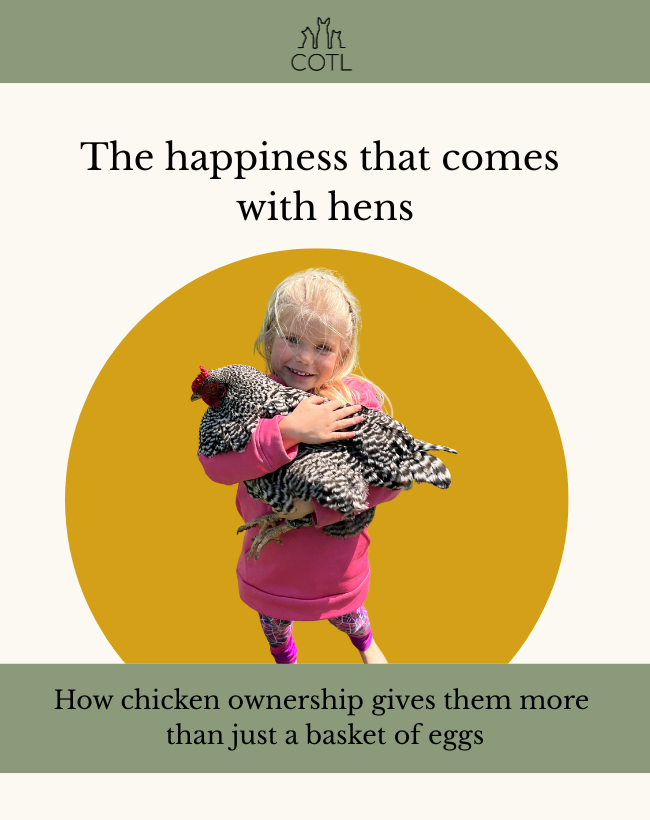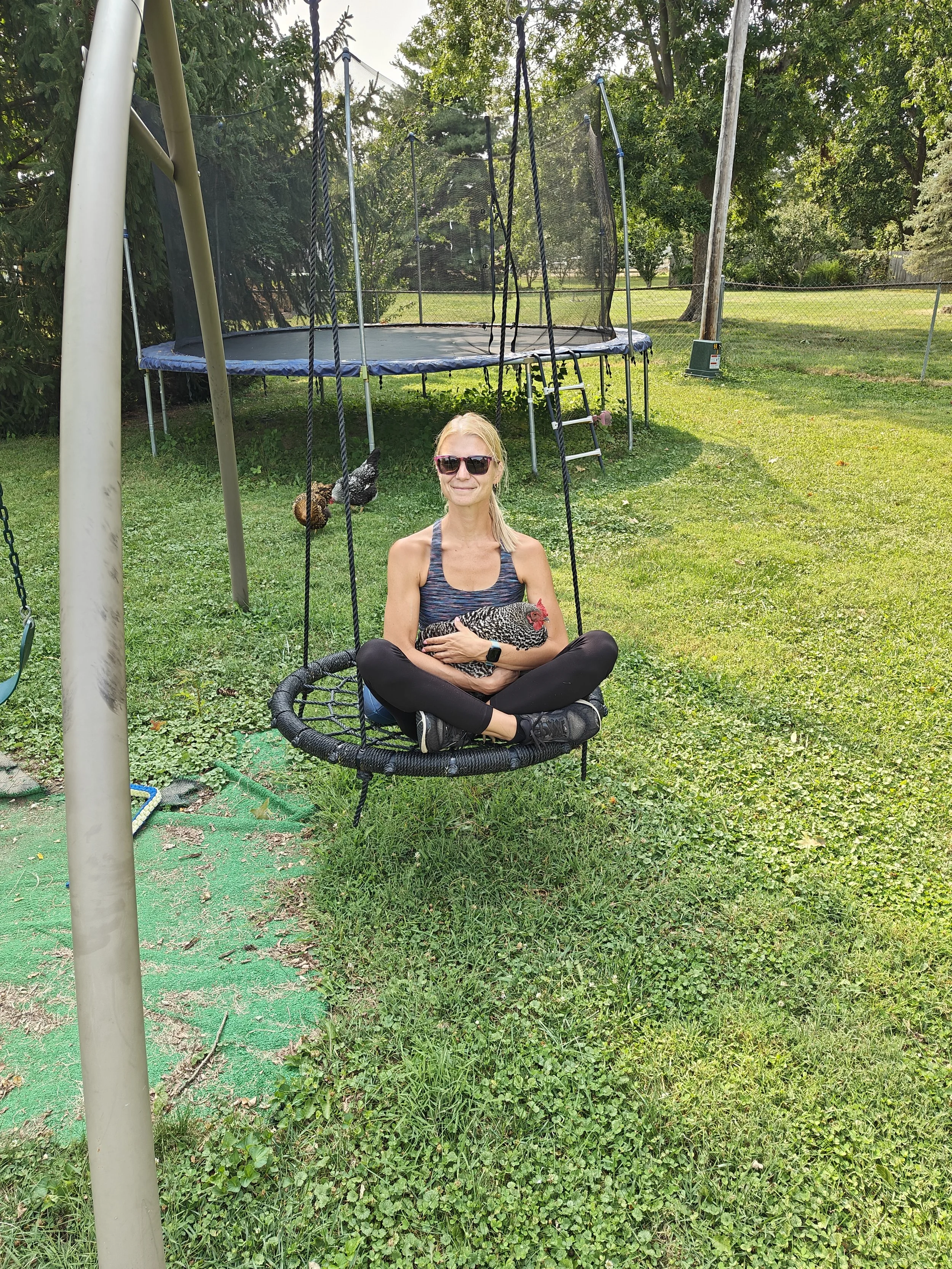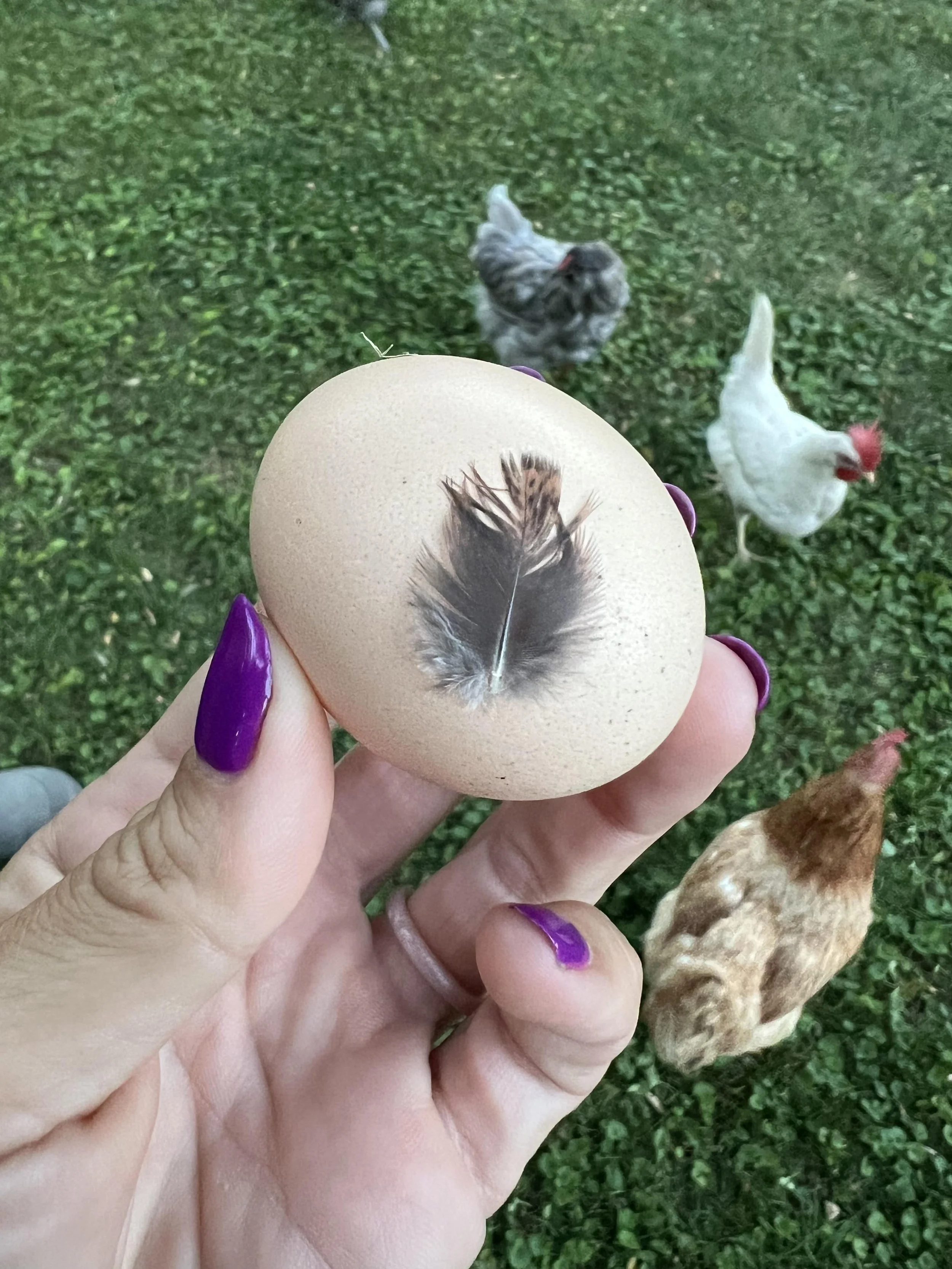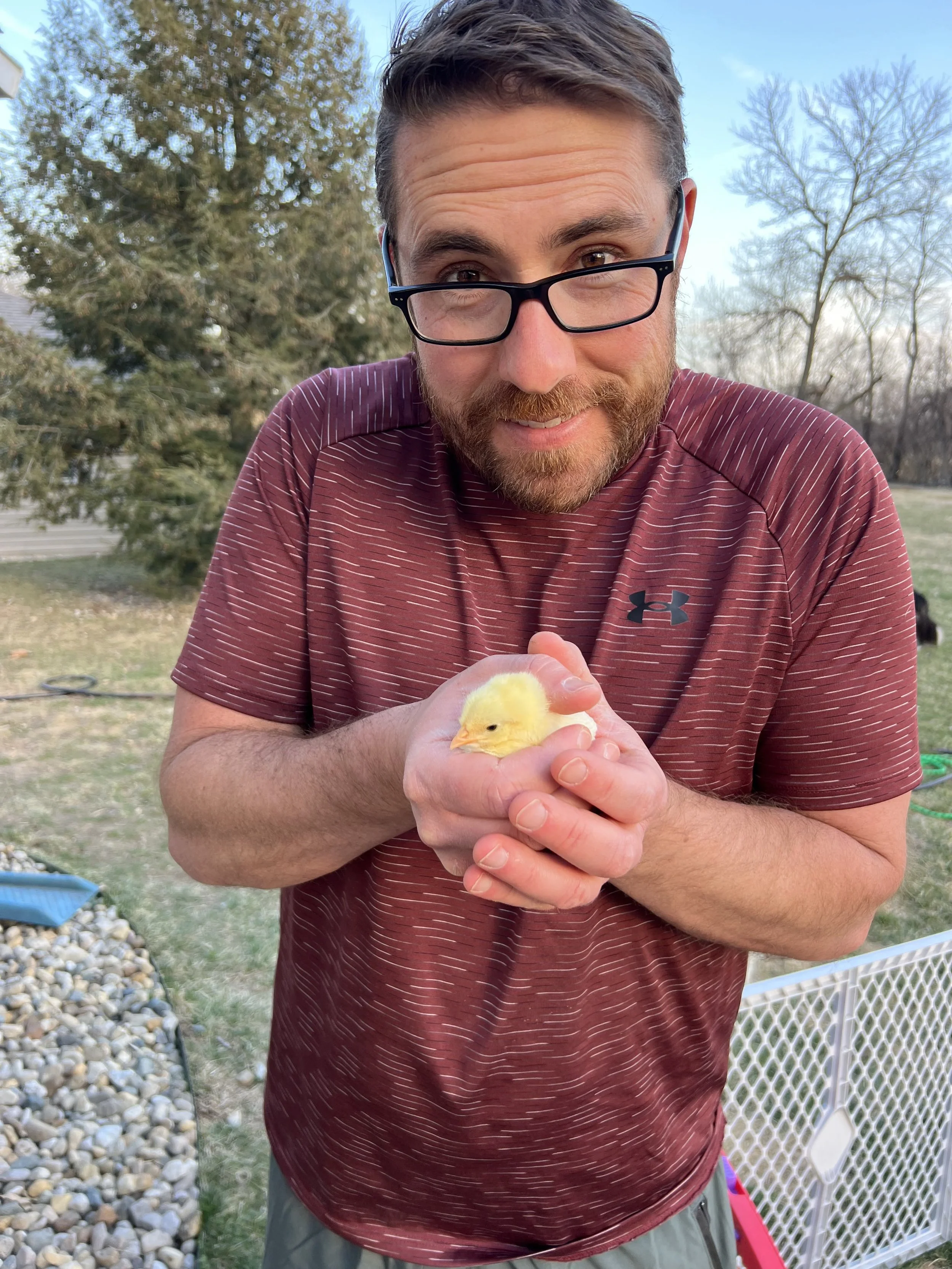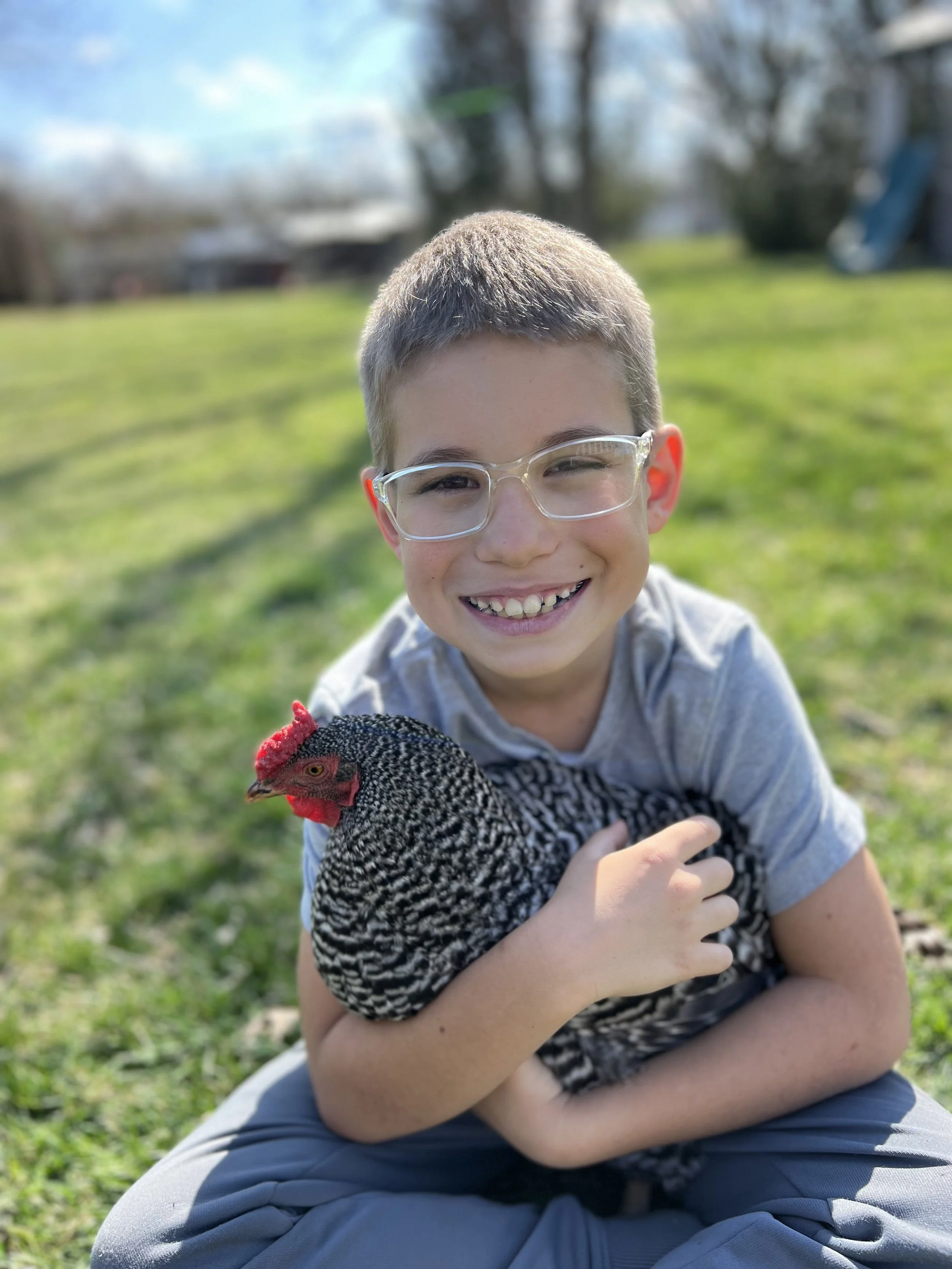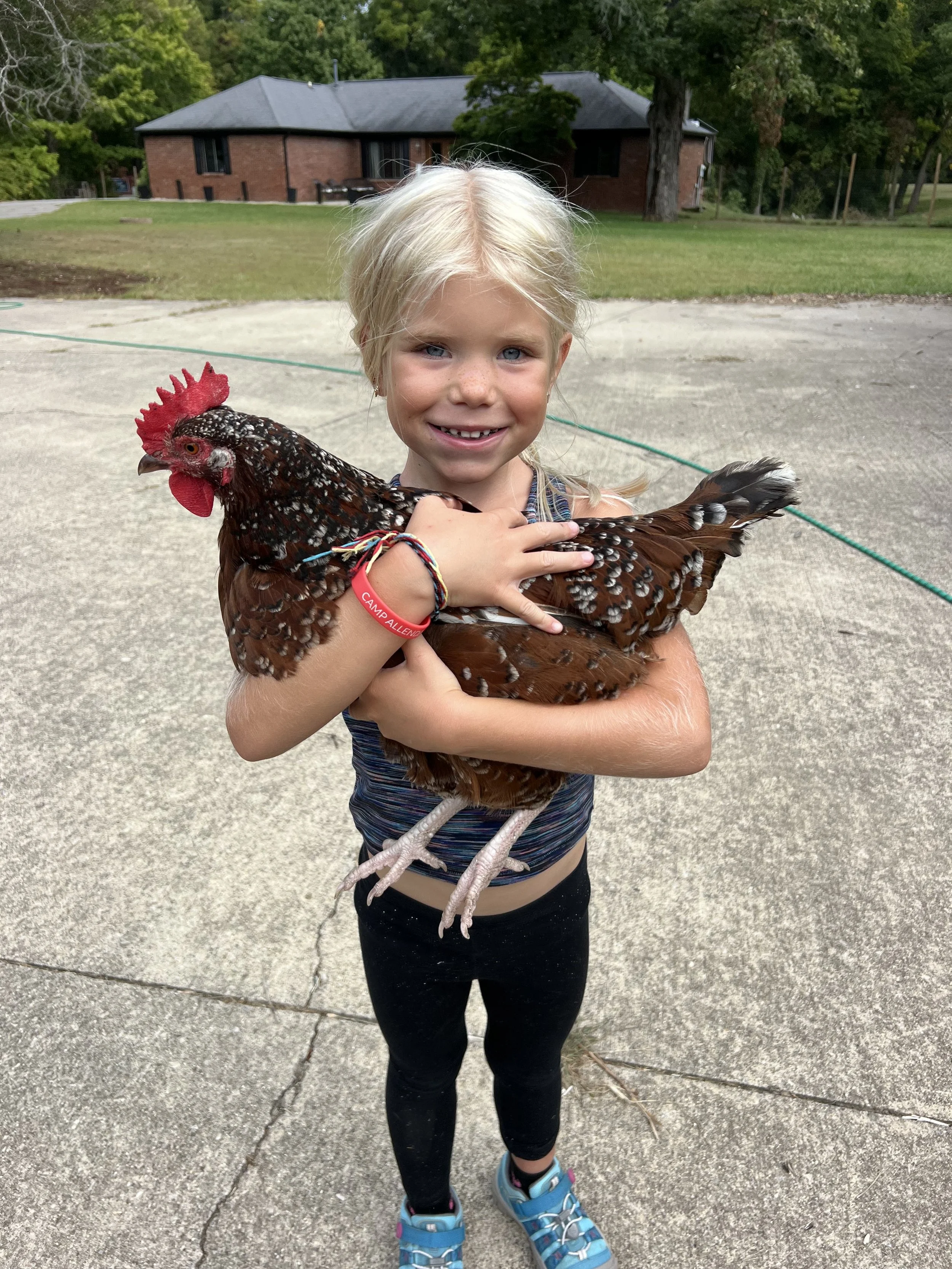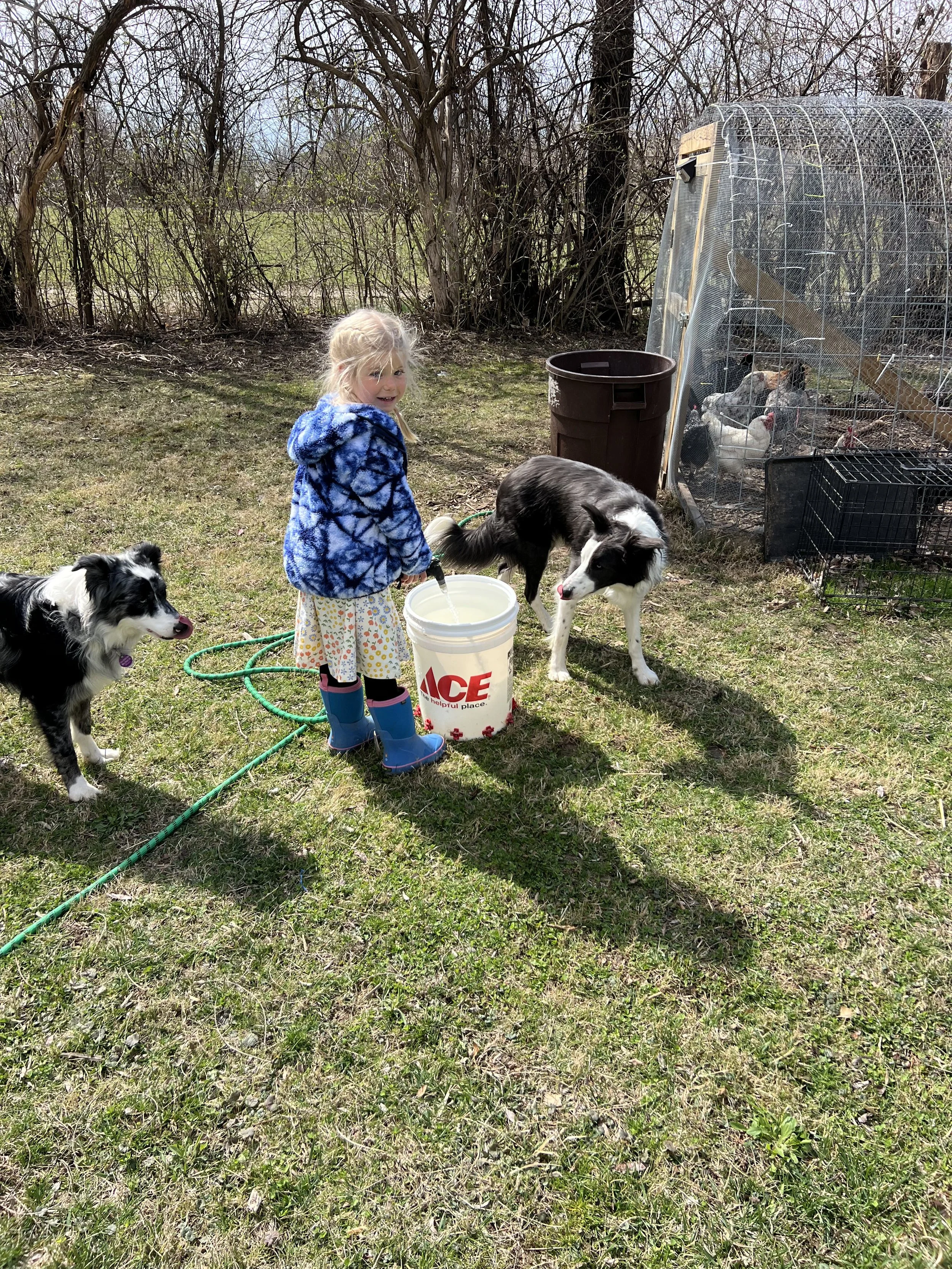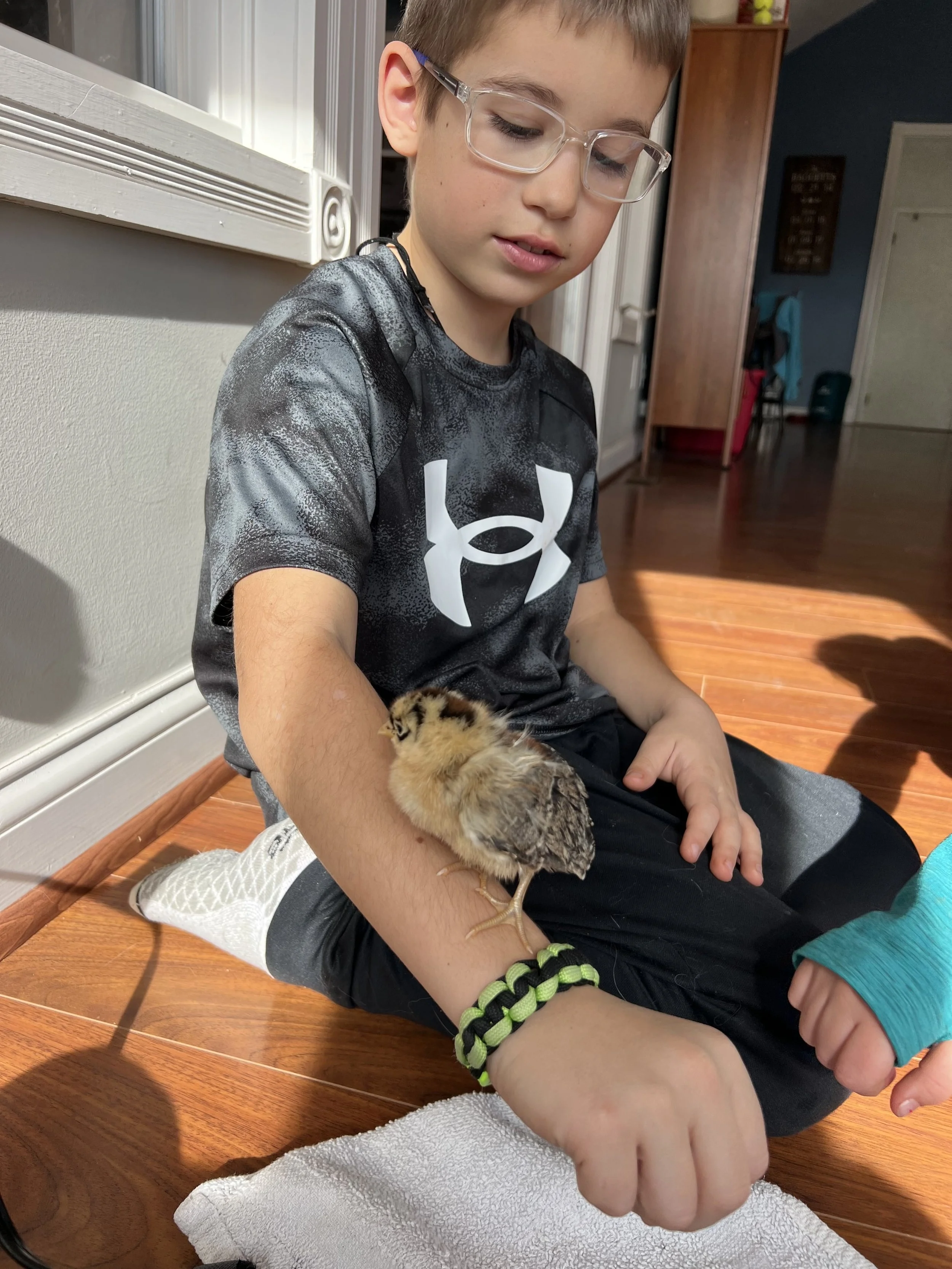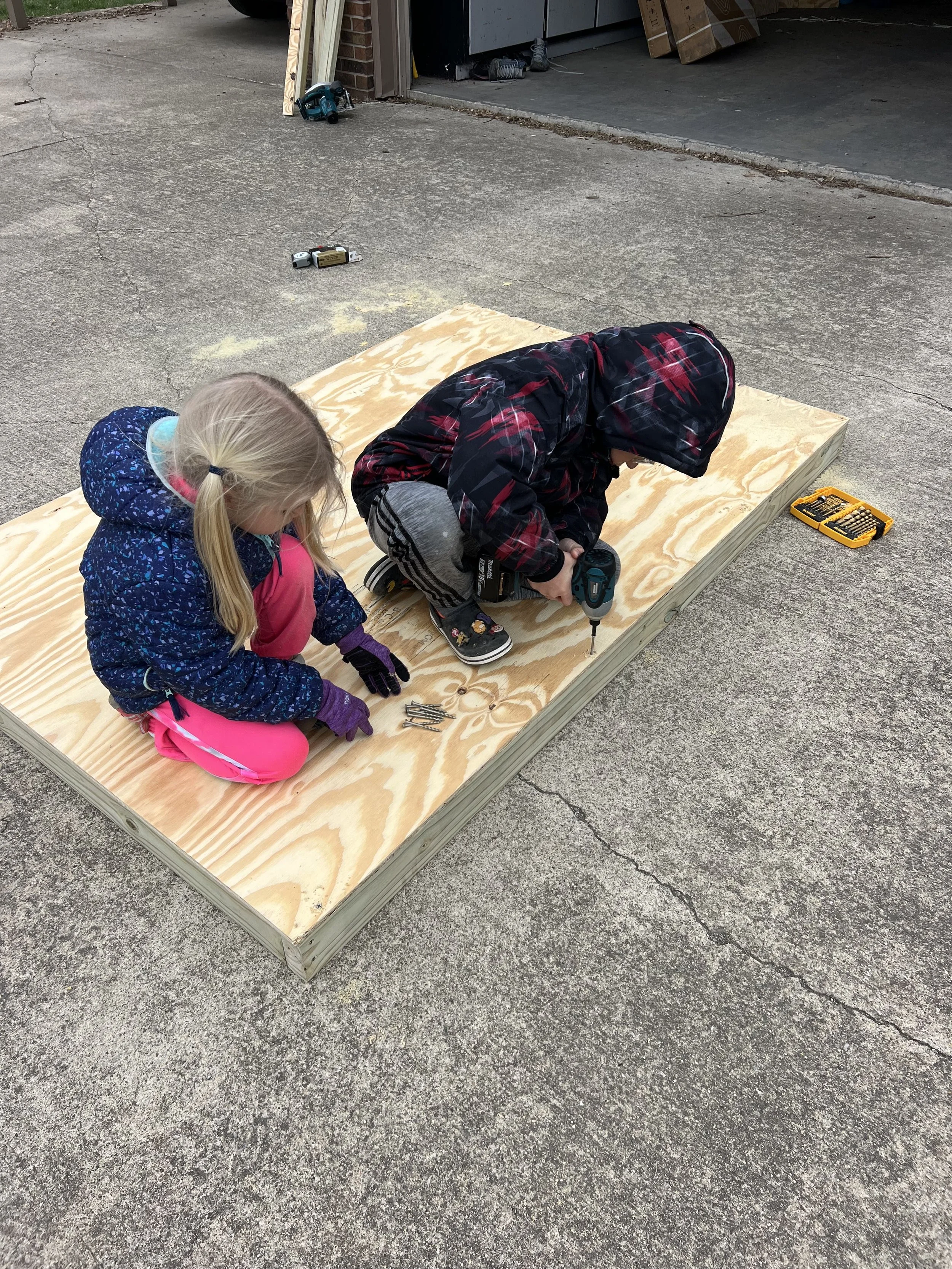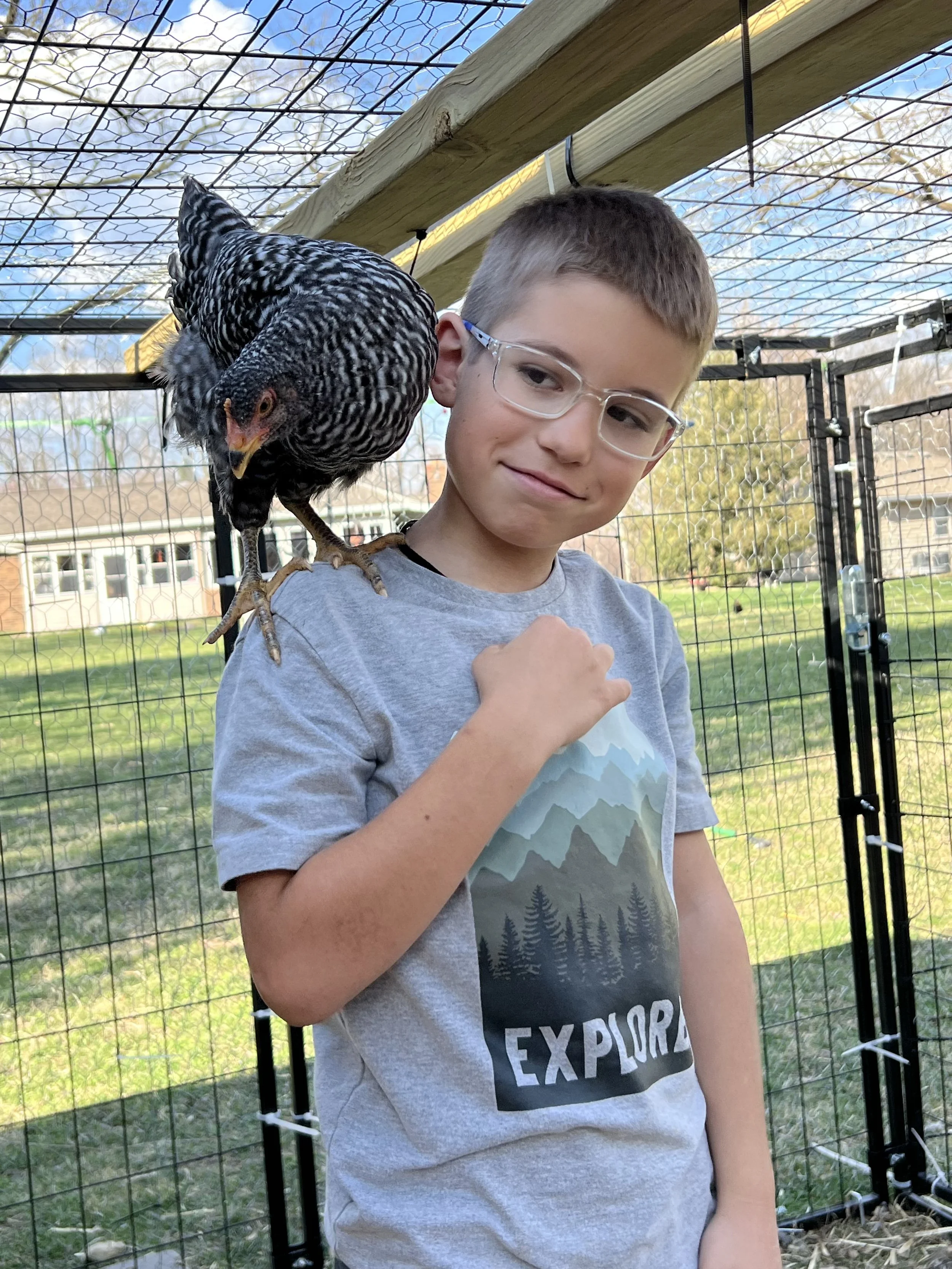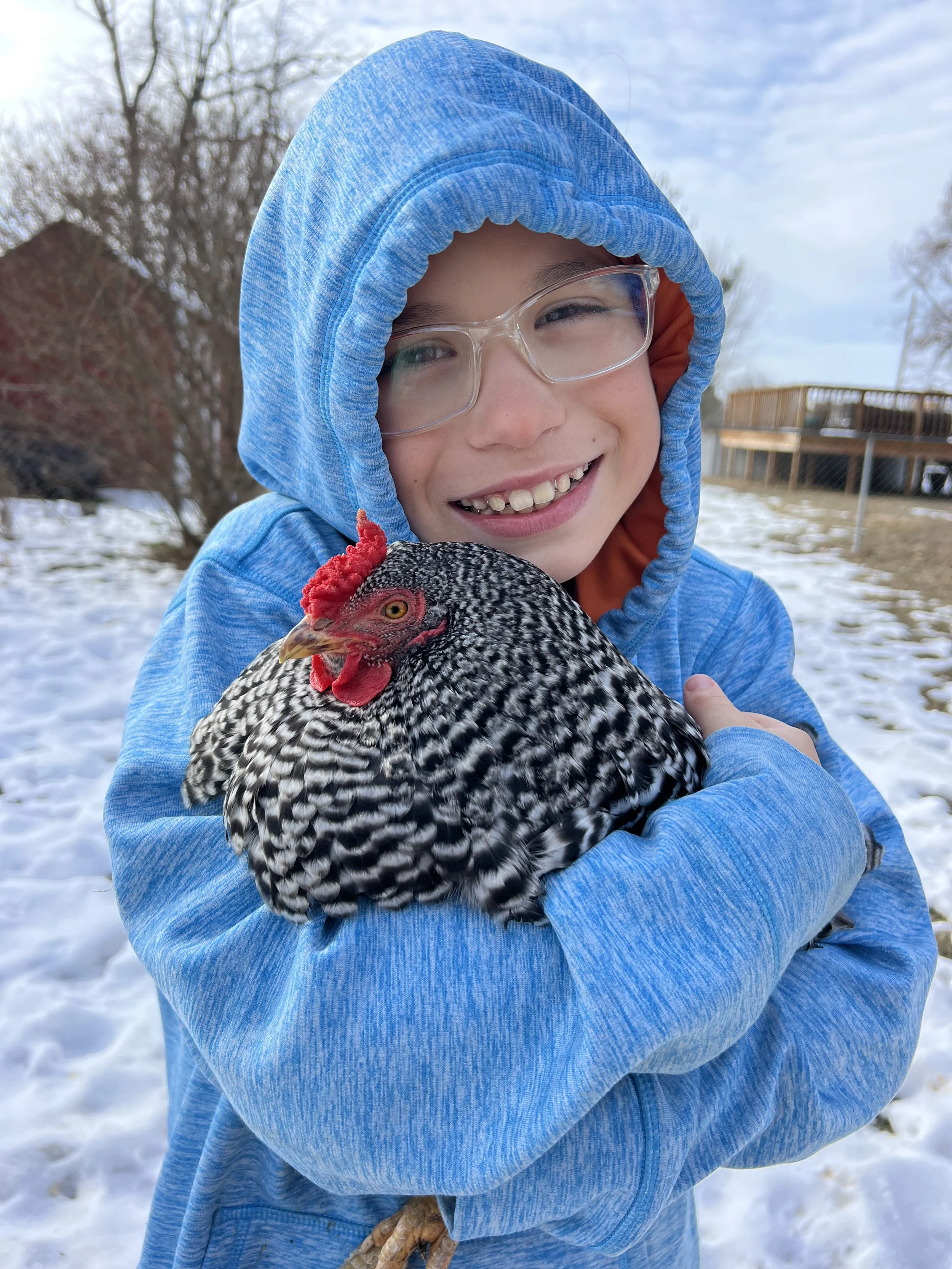🐔 These Chickens Are More Than “Just” Birds…
“I didn’t expect to bond with them individually and there’s certain chickens we just really like. We enjoy them more than we ever thought we would.”
When you grow up with common pets like dogs and cats, the idea of seeing chickens as anything more than backyard birds seems unlikely.
However, this might be a classic case of “you don’t know what you don’t know.”
It’s not until you have your own chickens that you understand there’s more to chicken ownership than cleaning coops and collecting eggs…
But can you actually bond with a hen?
She was destined to have a small “zoo”
Growing up, Hillary Baggett–homeschool mom of three adventurous kiddos and caretaker to three dogs, nearly 30 backyard birds (chickens and ducks), and a tortoise–always wanted animals.
“I had this fantasy that when I grew up, I'd have 3 different labs, a chocolate, a black, and a yellow, and then I was going to have all these cages with different reptiles, and I was going to have gerbils, and a rat… I was going to have everything. I wanted everything.”
Her love of animals started with gerbils. Before she and her sister were allowed to have a dog, the gerbils were their “dogs.”
They all had names, they were loved and cared for, and they even accidentally had babies. There were a lot of gerbils.
Hillary spent countless hours interacting with them, creating systems of tubes for them to explore and sorting seeds to make sure they had a nice variety to snack on.
With time, her desire for more pets only grew. She even tried to smuggle a goldfish home!
Eventually, they’d also have an assortment of fish and a cute little dog to call their own.
And as she continued to care for her pets, her connection to each one only became deeper… leading to an even stronger desire to have all the pets in the future.
The unexpected transition to chicken parenthood
“I liked the idea of having a big yard and a garden, and making your own food. It was always kind of a thing that would be cool to have. I don't think it was until we were considering moving to a different state that I was really like, ‘We need to find a property where we can have chickens.’”
Growing up, many of us associate chickens with farms, and Hillary was no different.
But as she got older and started learning about small homesteads and self-sustainability, the idea of having chickens began to grow on her.
In her old home, it wasn’t a possibility. But rewind back a couple years, and her family was about to make a move across states.
This was their chance to make these dreams a reality.
“We ultimately decided that we wanted a little bit of space, and we would be willing to sacrifice the house size. It wasn't solely for the chickens, but that was part of the bigger plan.”
Knowing nothing about chickens to that point, Hillary began an extensive deep dive into researching so she could gain the confidence, and knowledge, to start.
“For the most part, I did enough research. There's a lot to learn about it though, and a lot of it really is ‘learn as you go.’”
And with that understanding, she got 10 chicks and started the journey.
They never expected to feel this way
“It was like, ‘Okay, we’ll get chicks, they’ll be cute, they’ll grow up and make eggs… It’ll be like a chore.’ I initially thought of it as an opportunity to make food in our own backyard.
But they’re actually really fun! We spend a lot of time watching them, or even joking and talking about them.”
Never having interacted with chickens before, Hillary only had books and research to base her expectations on.
It wasn’t until raising her first set of chicks that she realized these aren’t “just” birds.
“They have different personalities and that kind of thing, and I don't think I realized that. I was like, ‘Oh yeah, they're just birds,’ but they’re really great.”
She’s not the only one in the family who feels this way. Her husband likes them a lot. He knew he’d enjoy them but has said multiple times, he also didn’t realize how fun they’d be.
And the children? They absolutely adore the chickens. Each has their favorite and they often choose to play outside with the hens even when it’s not time to do chicken-related chores.
But is this fondness actually a bond?
This hen proved, the connection is real
“Our favorites are definitely the ones that interact with us. There are some that aren’t as sociable but they’re fun… and funny looking… so we like those too, but in a different way.
We have pleasant feelings towards the majority, but it's a different bond than the ones who seem to interact and want to be with us.”
As the chicks grew into adults (and as the family continued to get even more chickens), the way they acted toward the hens started to change.
Hillary’s oldest child seems to be the animal whisperer, having an unspoken connection that naturally occurs with the pets.
He claims he trained another chicken, Narcissa, to be a “cuddle chicken.”
Hillary didn’t believe it at first. But witnessing a certain exchange firsthand made her change her mind.
“Any time we're doing yard work, she'll come up and peck us. My oldest claims, if she's pecking you, it means she wants you to pick her up. I was like, ‘Surely the chicken is not communicating that it wants to be carried by pecking me. It's just pecking at me because it's a chicken.’”
In reality? No, she actually does want to be carried!
Narcissa will peck at Hillary or one of the kids until they scoop her up. And then, she doesn’t want them to just stand still. She wants to go for a walk around the yard.
Eventually, she’ll flap out of their arms and carry on.
But if they put her down before she’s ready? She’ll continue pecking at them until they fulfill her desire to be “walked.”
“It's the strangest thing. So, she is a cuddle chicken, and she likes to be cuddled. She has even fallen asleep in their laps while on the swing.”
The perks to having chickens
Besides the obvious benefit of freshly-laid eggs on a daily basis, having nearly 30 backyard birds has given Hillary and her family a sense of purpose.
The hens rely on the children for their quality of life, so it helps them build responsibility and ownership.
“The kids help clean the coop, otherwise they'll get sick and they can get respiratory illness. All three of the kids can independently bring scraps to the chickens, and collect eggs…
It’s good for them to care for things–besides the dogs and tortoise–that are not themselves.”
It’s also given Hillary countless opportunities to educate the kiddos.
They get to learn that the type of food the chickens eat can affect the quality of their eggs. Their droppings go into the compost and become manure for the garden, affecting the soil quality and the veggies they grow for themselves.
It’s led to conversations about factory farming, animal husbandry, and ethical care practices, helping plant seeds in the kiddos’ minds for years to come.
The things they’d change if they could go back
It seems to be pretty common that, when people get “just a few chickens,” they typically end up getting more.
Because of that, Hillary definitely wishes she had started with a slightly bigger coop.
“We got a prefab coop… It's still in okay condition, but we built on a run to that. And since then, we built on more of a coop and also, more of a run. So we've got this chicken chalet in the backyard, and still, it's not going to be a permanent solution.”
She also feels it would’ve been more beneficial to research actual breeds at the beginning, instead of getting an “assortment” of dual-purpose chicks.
The initial idea was that, if for some reason they had to make their own meat, the dual-purpose chickens would be heavy enough to be meat birds while also laying eggs.
But after seeing the kind of connection they’ve created with their chickens, the egg-laying hens would’ve been perfect.
“I truly don't think we could eat our hens unless we were really dying.”
A safety net for even the most unconventional pets
It’s easy to think about dogs, cats, and even small animals like gerbils, when it comes to planning for the unexpected.
But what if you have unconventional pets? If something were to happen to you, what would happen to your horse, goats, or of course, chickens?
Putting a Cotl plan in place ensures your pet is taken care of, just the way they’re used to, no matter what happens to you.

